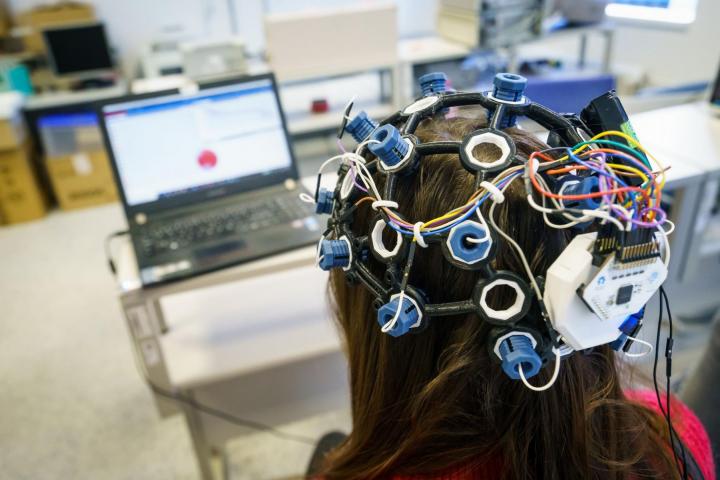
Using measurements of the brain's electrical activity, members of the team analyse sleep, its different stages and also assess specific electrophysiological markers related to memory consolidation (the storage of information in long-term memory). At the same time, they analyse and process human and animal EEG.
Among other things, the brain regenerates during sleep, and especially in the deepest sleep phase it is possible to support the storage of memory traces. This is very important for our everyday life. Lack of sleep can lead to mental and physical difficulties. The head of the Sleep and Chronobiology Research Centre, Jana Kopřivová, PhD, explains the aim of the project: “The aim of the collaboration between medical and technical researchers is to design and validate methods that could help improve sleep quality or support certain sleep functions, ideally at home”. CTU and NIMH are jointly conducting experiments, where brain activity during sleep is continuously monitored and analysed, and a soft sound is then played to the person sleeping at precisely defined stages of deep sleep. The brain immediately responds with an increase in slow-wave activity that is specific to deep sleep. The scientific world is currently experiencing a boom in this area of brain stimulation. Until now, it was assumed that the observed response to acoustic stimulation was the result of newly excited neuronal activity. In our unique research, we have shown that the so-called phasing of several brain waves has a significant effect. Thus, it is likely that the brain does not activate such a significant number of neurons after stimulation, it's the activity of neurons that is synchronised in time.
Ing. Marek Piorecký, Ph.D., head of the BRAIN team, explains the principle of the idea: "The phasing of neuron activity can be imagined as a carousel that spins several children at once in the same direction of rotation. If some of the children were to spin in the opposite direction to the others, or if the individual children were to engage sequentially, the speed of rotation (in our case, the observed signal amplitude is the parallel) would not be as high as if the children were to spin the carousel simultaneously."
This new finding advances research in the field of acoustic stimulation and sleep deepening towards an understanding of the underlying mechanisms and is the next step in making the method more effective and potentially useful in practice.